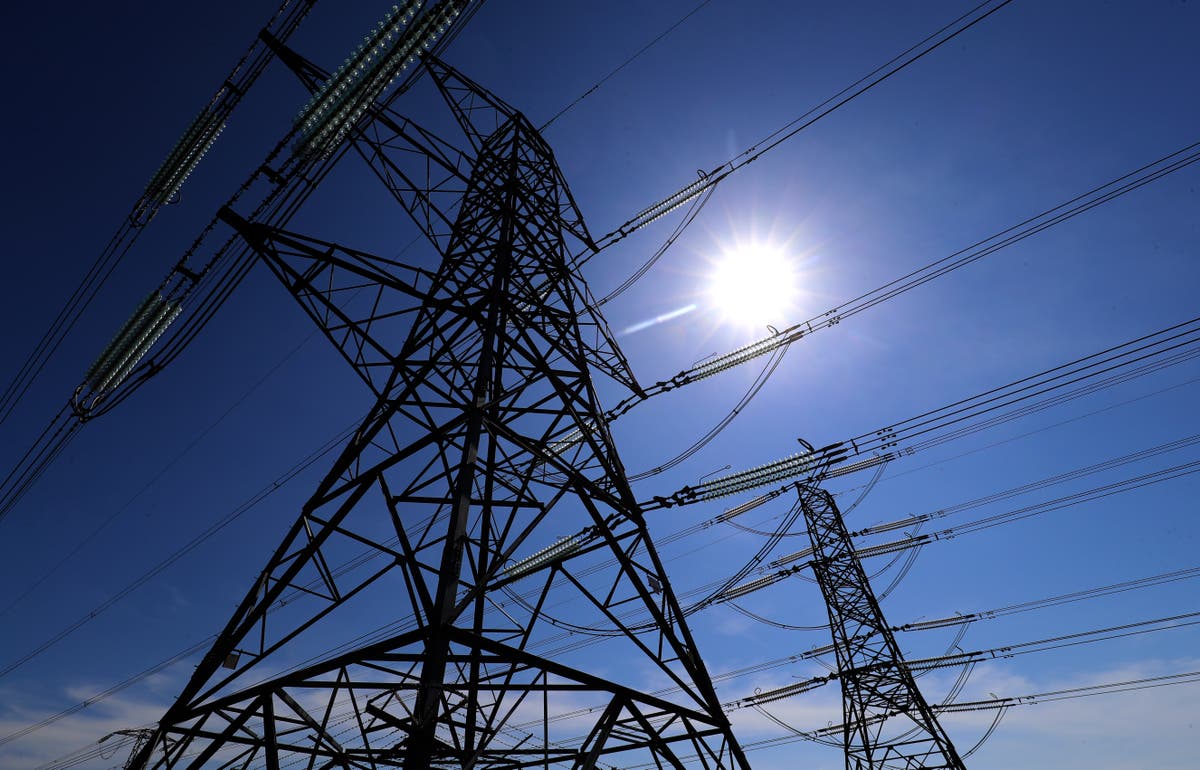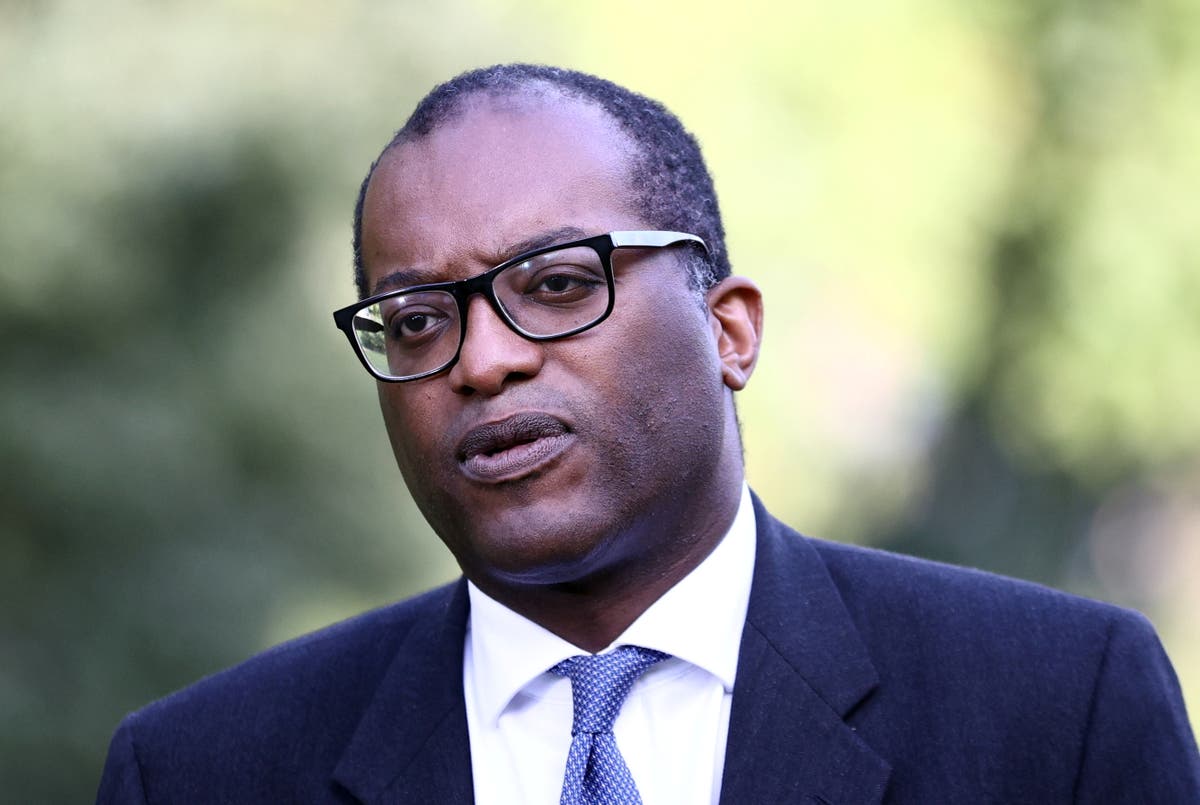Energy companies bust: Government not ‘complacent’, Kwarteng insists amid claims Ofgem warned of crisis
Follow here for the latest updates
Your support helps us to tell the story
From reproductive rights to climate change to Big Tech, The Independent is on the ground when the story is developing. Whether it's investigating the financials of Elon Musk's pro-Trump PAC or producing our latest documentary, 'The A Word', which shines a light on the American women fighting for reproductive rights, we know how important it is to parse out the facts from the messaging.
At such a critical moment in US history, we need reporters on the ground. Your donation allows us to keep sending journalists to speak to both sides of the story.
The Independent is trusted by Americans across the entire political spectrum. And unlike many other quality news outlets, we choose not to lock Americans out of our reporting and analysis with paywalls. We believe quality journalism should be available to everyone, paid for by those who can afford it.
Your support makes all the difference.The government has not been complacent over the energy crisis, Kwasi Kwarteng has insisted, after Labour’s Ed Miliband produced a letter he claimed was sent by regulator Ofgem to the business secretary 18 months ago warning of a “systemic risk” to the UK’s energy market.
A 250 per cent spike in wholesale gas prices has caused seven firms to collapse in a matter of weeks, with Avro Energy and Green becoming the latest to fold.
As figures from the regulator showed nearly 1.5 million households have now suffered their suppliers going bust, junior minister Paul Scully said it was “not going to be possible” to guarantee that their bills would not rise – contradicting assertions by Mr Kwarteng days earlier that customers being transferred to new providers should “be expected to pay the same amount”.
While all customers affected will continue to receive energy until Ofgem allocates them to a new – possibly more expensive – supplier, the regulator’s boss Jonathan Brearley warned MPs that the number of households affected “may well go well above” the hundreds of thousands.
Mr Scully also said it would be up to the energy watchdog to decide whether the price cap should rise. It is currently due to next be reviewed in April.
The business minister told Sky News the government was “planning for the worst-case scenario”, which he said was that gas prices would remain high beyond a short spike.
Both Mr Kwarteng and the regulator have insisted the cap should remain in place.
That’s us wrapping up the liveblog for today, thanks for following with us.
You can find all of The Independent’s latest business articles here.
Or else keep scrolling to read about the day’s events, as we reported them.
Good morning, and welcome to The Independent’s live blog on the UK’s energy crisis, where we’ll be providing rolling updates on the latest news and statistics.
Nearly 1.5 million households hit by firms going bust
Nearly 1.5 million UK households now face being switched to a new – and possibly more expensive – supplier, after their firms went bust.
Figures from Ofgem show that the collapse of Avro Energy and Greenwill on Wednesday affected a further 830,000 customers.
Nine firms have now collapsed, which according to the BBC accounted for five per cent of the UK’s energy market.
Avro Energy collapse prompts questions over ‘supplier of last resort’ system
My colleague Ben Chapman reports:
With 580,000 customers, Avro Energy is by far the largest company to go out of business so far, prompting questions over whether the “supplier of last resort” system can cope.
Another medium-sized supplier, Igloo, is reportedly on the verge of collapse, with administrators said to be assessing the options for insolvency.

1.5 million households hit by gas supply crisis as more firms go bust
Gas price surge forces two more companies out of business, with others thought to be on the brink – but regulator says households will be protected
UK not heading back into ‘winter of discontent’, junior minister insists
The UK is not heading back into a 1970s-style “winter of discontent”, a junior minister has insisted, referring to the period when the economy was brought to it knees by strikes and power cuts.
Asked by Times Radio if a winter of discontent with empty shelves, power cuts and rising living costs was looming, Paul Scully said: “No. Look this isn't a 1970s thing at all. I don't recognise that."
“We need to build resilience back into the economy in some of these areas,” the small business minister said, adding: “There is not need for people to go out and panic buy.”
Government having ‘lots of conversations’ about possible energy cap increase
Ministers are discussing with Ofgem about whether or not a cap on gas and electricity prices for consumers may have to go up, a junior business minister has said.
“We've had lots of conversations ... with companies themselves, with Ofgem, in reviewing that price cap we clearly want to protect customers,” Paul Scully told Sky News.
Asked what the worst-case scenario was for a cap rise, Mr Scully – who described there being “pressure” on the cap – said: “This is all part of the conversations that Ofgem will set that cap at, because supply prices are based on a number of factors.
“Clearly, as government, we need to make sure we are planning for the worst-case scenario because we want to make sure we can protect consumers.”
Pressed on what the worst-case scenario looked like, he added: “That is goes on for longer than a short spike. I can't give you a figure now.”
The price cap, set by Ofgem, limits the cost of energy for about 11 million people on suppliers’ default tariffs. It is reviewed twice a year.
It is due to rise 12 per cent on 1 October to £1,277 for a household using an average amount of energy, and would in normal circumstances be reviewed again in April 2022.
Ministers considering windfall tax on gas firms amid price spike
Ministers are considering introducing a windfall tax on firms that have benefitted from soaring wholesale gas prices in recent weeks as energy firms struggle, my colleague Conrad Duncan reports.
Kwasi Kwarteng did not rule out such a move when asked by the Business, Energy and Industrial Strategy Select Committee about the possibility of a levy on “the generators and traders who are making very significant profits”, which has been used in Spain, to fund protections for customers.
“We are looking at all options,” the business secretary told the committee. “What they are doing in Spain is recognising that it's an entire system – the energy system is an entire system. I am in discussion with Ofgem and other officials, looking at all options.”
However, the minister added that he was “not a fan” of windfall taxes in principle, despite the option being considered in order to protect the UK’s energy system.

Ministers considering windfall tax on gas firms amid price spike
Officials are said to be looking at ‘all options’ to deal with crisis over price of gas
UK must become less reliant on gas, supermarket boss says
The UK needs to become less reliant on gas by using a “broader energy mix” in future to prevent shortages caused by high global gas costs, the boss of Iceland has said.
Speaking on Sky News, Richard Walker said: “In the short-term I'm more confident that supply chains will be more uninterrupted.
“Certainly in our own business we've been building up stocks of key lines that potentially could have been at risk, like frozen meat for example, and we're confident that we have fully stocked shelves.
“However I think we've now got to think longer-term. This loan is only three weeks: what happens after that, or what happens the next time the gas prices spike? So we need a broader, more diverse and therefore more sustainable energy mix so we're not so reliant on gas.
“We also need to look as a food industry, but also further up the supply chains, at different, better ways of capturing CO2 and potentially using alternative gases as well.”
Government strikes deal with US firm to restart CO2 production
My colleague Celine Wadhera has this report on the government’s deal with US firm CF Industries to restart carbon dioxide production at its UK plants – after it halted production in response to the hike in gas prices.
The halt in operations has led to a food production crisis, as CO2, a byproduct of fertiliser production, is widely used in food processing – to stun animals for slaughter, package meats and salads, and to carbonate beer and other fizzy drinks.
In a move that Kwasi Kwarteng said would avert “disruption” in the “many critical industries that rely on a stable supply” of CO2, taxpayers will pay towards the operating costs of the manufacturer – which typically supplies around 60 per cent of the UK’s food-grade CO2 – to ensure supply for the food sector continues.
The agreement will be in place for three weeks while the “CO2 market adapts” to the surge in global gas prices, according to the Department for Business, Energy and Industrial Strategy.

Government strikes deal to restart CO2 production after gas prices surge
The details of the deal have yet to be announced
‘Not possible’ to guarantee energy bills will not rise for customers whose suppliers go bust
A junior minister has rowed back on government assertions that bills will not rise for customers forced to switch energy providers due to companies going bust.
Just two days after the business secretary, Kwasi Kwarteng, said he thought those being transferred to new providers would “be expected to pay the same amount”, junior minister Paul Scully told Times Radio: “No, that's not going to be possible in terms of a guarantee.
“What we'll have though is security. They don't need to do anything because their transfer will be made directly through the Ofgem scheme, making sure that they have a company looking after them, supplying their energy.
“What I'd recommend they do though is take a meter reading, take a photo of their meter if possible, and then everything will be done automatically for them.
“But what we want to do is make sure first of all they have continuity of supply and then, as a government, that we are helping to keep those prices down through the price cap, through the warm homes discount as well for the lowest paid, and people on pension credit.”




Join our commenting forum
Join thought-provoking conversations, follow other Independent readers and see their replies
Comments